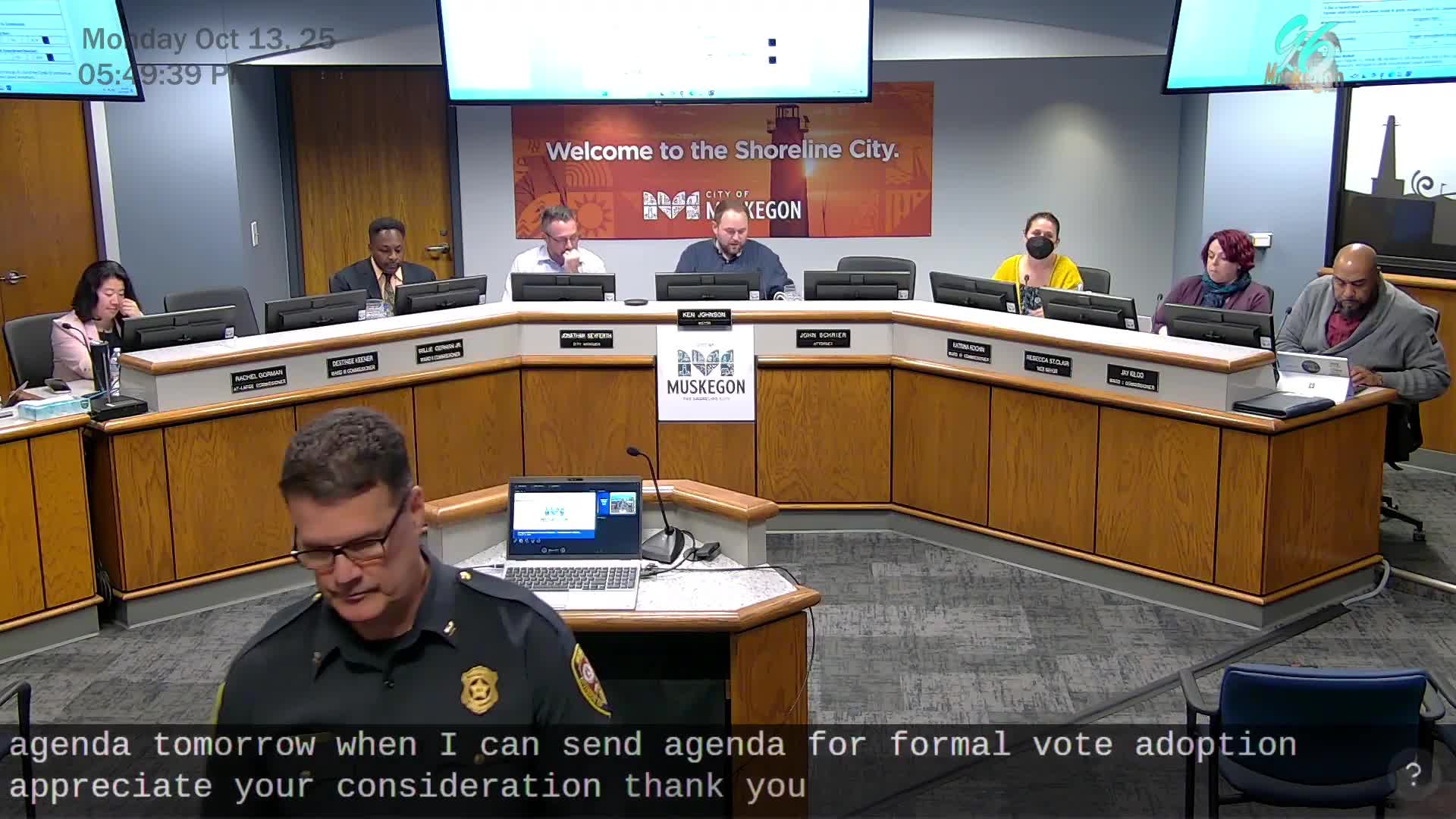Muskegon City weighs $554,000 project-development agreement with Johnson Controls for energy upgrades
Get AI-powered insights, summaries, and transcripts
Subscribe
Summary
Dan Vander Hyde, Director of Public Works, and representatives from Johnson Controls presented a proposed project-development agreement at the Muskegon City Commission work session on Oct. 13 that would fund engineering for an energy performance contract covering DPW, City Hall, the water system and other assets.
Dan Vander Hyde, Director of Public Works, and representatives from Johnson Controls (JCI) presented a proposed project-development agreement at the Muskegon City Commission work session on Oct. 13 to begin engineering for an energy performance contract covering several city facilities.
The project-development agreement under consideration would authorize up to $554,000 for engineering, design and deep-dive assessments (the cost is not payable immediately but would be due if the city declines to move forward with the full construction contract later). Vander Hyde cautioned commissioners that the city should not approve the development agreement unless they are willing to consider the larger energy performance contract when it is brought back: "Please do not approve this item tonight unless you're comfortable with the idea of an energy performance contract of the improvements that this agreement will detail," he said.
Why it matters: The structure under discussion is a guaranteed-energy-savings contract allowed under Michigan law (Public Service Act 625). The model lets the city advance deferred maintenance and equipment replacement now and finance construction over a long-term period (commonly 20 years) while capturing energy and billable-revenue gains to offset the financing.
Scope and examples presented - Primary target sites: Public Works (DPW) facility, City Hall (replacement of an aging chiller and related chilled-water equipment), water filtration plant (boilers, some HVAC), parks/marina lighting and other assets; staff described a proposed focus on high-energy and end-of-life equipment. - Water meters: JCI highlighted the water-meter program as a core financial component. Muskegon has about 14,000 water meters; staff said roughly 2,000 have been replaced in recent years and JCI proposed replacing the remainder as part of the work. JCI representatives said new meters would carry a 20-year warranty and maintain new-meter accuracy (quoted guarantee: 98.5% accuracy for the warranty period). - Timeline and cost uncertainty: Vander Hyde and JCI said the development phase will take roughly six to eight months to produce detailed costs and a recommended final scope. The full construction package could range from a few million to many millions of dollars (presenters gave a rough range of $5 million to $15 million as possibilities depending on scope and choices).
Financing, guarantees and risk JCI described the program as a 20-year financing vehicle (not to exceed equipment life) that guarantees energy and revenue savings; the firm said it has long experience in the field and cited a Marquette project as a reference (a previously completed multi-million-dollar project where JCI reported being ahead of projected savings). Chris Downs of Johnson Controls explained that if guaranteed savings are not met, the company will pay the difference: "We would cut a check — if we miss our commitment and our guarantee, we got a check," he said.
Other details discussed in Q&A - Engineering cost: The $554,000 development agreement represents a not-to-exceed engineering budget; commissioners were told those costs are not due immediately but will be accounted for in the project's finance plan or become due if the city elects not to proceed with construction after the development work. - Meter program specifics: Presenters suggested completing the unfinished meter replacement program more quickly rather than continuing multi-year piecemeal replacements. Chris Downs noted sample meter costs and installation scale, and JCI staff described customer-portal, leak-detection and AMI network features. - Project controls and commissioner authority: Commissioners emphasized that they want regular workshops and the ability to exclude individual elements during the development phase to avoid paying for engineering on components they will not approve. Staff confirmed the development-phase scope can be narrowed and that any construction contract would be presented to the commission for approval.
Next steps: The development agreement will be placed on the Oct. 14 consent agenda for a formal vote. If approved, JCI will begin workshops and site-specific engineering work over the following six to eight months and report back to the commission with final scope and financing details in the spring.
Ending: The proposal would allow the city to accelerate deferred maintenance and potential efficiency upgrades while using guaranteed savings and long-term financing to spread costs; commissioners will decide at the Oct. 14 meeting whether to authorize the development phase.
